Inheritors Rights Under New York Law
Inheriting property can be a blessing. It can also be a complex process in New York because of the specific laws governing the rights of inheritors. Understanding your rights as an inheritor is the first step in ensuring a fair and just distribution of assets.
Understanding the Basics: Wills and Intestate Succession
Understanding the difference between dying with a will and without a will is essential. A will is a legal document specifying how a person’s assets should be distributed after death. When a person dies with a valid will, their assets are distributed according to the terms outlined in the will. However, if a person dies without a will, their assets are distributed according to New York’s intestate succession laws. These laws prioritize immediate family members, but the distributions can vary.
Rights of Inheritors Under a Will
When a person dies with a valid will, the rights of inheritors are determined by the terms of that will. The person who made the will, the testator, can distribute their assets as they see fit. This means they can choose who will inherit their property, in what amounts, and under what conditions.
Challenging a Will
Inheritors can contest a will if they believe it is invalid. Lack of testamentary capacity may be argued in cases where the testator was believed to not be of sound mind when creating the will. The argument of undue influence is used when the inheritors think the testator was coerced or influenced by another person when drafting the will. Fraud may be argued if the will was created with false information or deceit. Improper execution challenges the will if it does not meet New York’s legal requirements. If a challenge is successful, the will may be invalidated in whole or in part, and the estate may be distributed according to a prior valid will or New York’s intestate succession laws.
Elective Share Rights of Spouses
In New York, a surviving spouse has a unique right known as an elective share. This law ensures that a surviving spouse cannot be disinherited by awarding the spouse $50,000 or one-third of the deceased’s estate.
Rights of Inheritors Under Intestate Succession
In New York, when someone dies without a will, their assets are distributed according to the state’s hierarchy of inheritors. If a spouse and children survive the deceased, the spouse inherits the first $50,000 plus half of the remaining estate, while the children share the other half. If there are no children, the surviving spouse inherits the entire estate. If no surviving spouse exists, the children inherit the estate equally. The deceased’s parents inherit the estate if there is no surviving spouse or children. In cases where the deceased has no surviving spouse, children, or parents, the estate is inherited by siblings or their descendants.
Rights of Adopted Children and Stepchildren
In New York, adopted children have the same rights as biological children under inheritance laws. Stepchildren do not have the same automatic rights unless the deceased legally adopted them. If a person wishes to leave assets to a stepchild, they must do so explicitly in a will or other estate planning document.
Rights of Pretermitted Children
A pretermitted child is one who is unintentionally omitted from a will, often because they were born after the will was created. New York law assumes that the omission was not intentional, and the child may be entitled to a share of the estate as if the deceased had died intestate. However, if the will disinherits the child or includes a provision stating that no future children are to inherit, the child may not have a right to inherit.
Rights to Personal Property and Exemptions
New York law provides specific exemptions and rights to inheritors regarding personal property, ensuring that certain assets pass directly to a surviving spouse and minor children outside of the probate process. This exempt property includes items such as household furniture and items valued up to $20,000, a motor vehicle worth up to $25,000, cash or other financial instruments up to $25,000, books, pictures, and technology up to $2,500, and if applicable, farm machinery valued up to $20,000. These exemptions help surviving family members maintain access to essential personal property during the often lengthy probate process.
The Probate Process and Inheritors’ Rights
Probate is the legal process where the will is validated, and the estate is administered. The executor named in the will manages the estate, pays debts and taxes, and distributes assets to the inheritors. Inheritors have the right to be notified of the probate process and any hearings related to the estate. They may request an accounting from the executor that details how the estate’s assets are managed and distributed. Inheritors also have the right to receive their share of the estate promptly once all debts, taxes, and expenses have been paid.
What to Do If You Believe Your Rights Are Being Violated
If you believe your rights as an inheritor are being violated, it is crucial to take action promptly. This may involve contesting a will, challenging the actions of an executor, or seeking clarification of your rights under New York law. Ortiz & Ortiz understand the challenges that come with the loss of a loved one. We can help you resolve disputes and secure your rightful inheritance, bringing peace of mind during this difficult time. Don’t let the legal process overwhelm you—contact us today at 917-920-6437 to schedule a strategy session.



